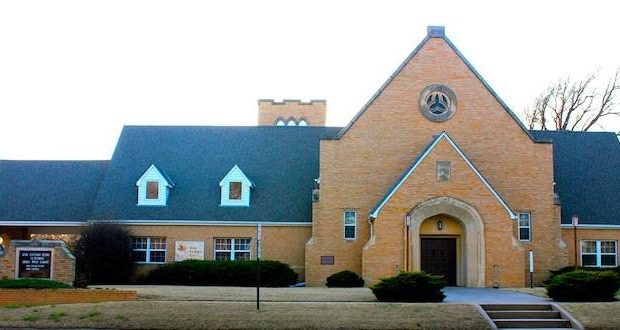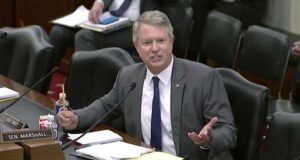Two churches in Kansas are among a growing number of organizations publicly stating they will break Federal law when it comes to harboring individuals who have entered the country illegally.
The law, 8 U.S. Code § 1325 – Improper entry by alien, states that individuals may be imprisoned for up to 6 months on their first illegal entry and up to two years on subsequent entries.
Multiple illegal entries make the crime a felony–the same as armed robbery or the rape of a minor.
The churches, Shalom Mennonite Church in Newton and Moundridge’s First Mennonite Church, are two of a growing number of churches nationwide that have joined the “sanctuary” movement. Those churches have pledged to offer protection from law enforcement agencies to immigrants who have entered the U.S. illegally and face the threat of deportation–even if they may be wanted for a crime.
“Our mission as a church is to serve our neighbors in the name of Christ,” said the Rev. Laura Neufeld Goerzen, pastor of First Mennonite. “In the story of the Good Samaritan, Jesus makes it pretty clear that our neighbor is anyone who happens to be in need regardless of their race or nationality. Designating our place as a place of sanctuary felt like a natural outgrowth of our mission.”
Many churches have opposed the sanctuary movement, saying religious spaces have no legal authority to protect illegal immigrants any more than it is right for a church to harbor someone who has robbed a bank or gas station. Polls show that the vast majority of Americans feel it is immoral to harbor people in the U.S. illegally.
Pastors at Shalom and First Mennonite have said they wouldn’t try concealing the fact that they’re housing someone, but understand there could still be consequences with the U.S. Immigration and Customs Enforcement. The fact that is a federal crime to conceal, harbor or shield from detection anyone who has entered or remains in the U.S. illegally, may be lost on the pastors who believe they are helping an individual.
“In my upbringing I was taught to value this idea that sometimes the church should be a witness to something can be against a law,” said Ben Woodward-Breckbill, associate pastor at Shalom.
Both churches will undergo renovations to create apartment-style spaces for immigrant families to live while they work on their legal cases.
“We can’t guarantee that ICE wouldn’t come in and remove them,” Goerzen said. “But there is an understandable hesitation on the part of ICE to arrest someone in a holy space.”
A growing number of legal residents of the United States are speaking out against sanctuary cities.
When lawmakers in Howard County, Md., just outside Washington and Baltimore, declared their intention to make the county a sanctuary for people living in the country illegally, J. D. Ma thought back to how hard he had worked studying English as a boy in Shanghai.
Stanley Salazar, a native of El Salvador, worried that the violent crime already plaguing Maryland’s suburbs attributed to immigrant gangs would eventually touch his own daughters. He came to the U.S. legally, along with millions of others over the last few years and in passionate testimony before county legislators, and in tense debates with liberal neighbors born in the United States, legal immigrants argued that offering sanctuary to people who came to the country illegally devalued their own past struggles to gain citizenship.
The liberal county, run almost exclusively by democrats, was shocked as legal immigrant after legal immigrant stepped forward to voice their opposition to the sanctuary movement.
The bill, originally thought to sail through the legislative process and be passed into law without opposition, was defeated.
It is not known if the pastors from Newton have talked to legal immigrants to get their views on offering sanctuary.
In the growing rush to break Federal Law, church pastors may want to get a different opinion–even in Kansas.
 Metro Voice News Celebrating Faith, Family & Community
Metro Voice News Celebrating Faith, Family & Community 








